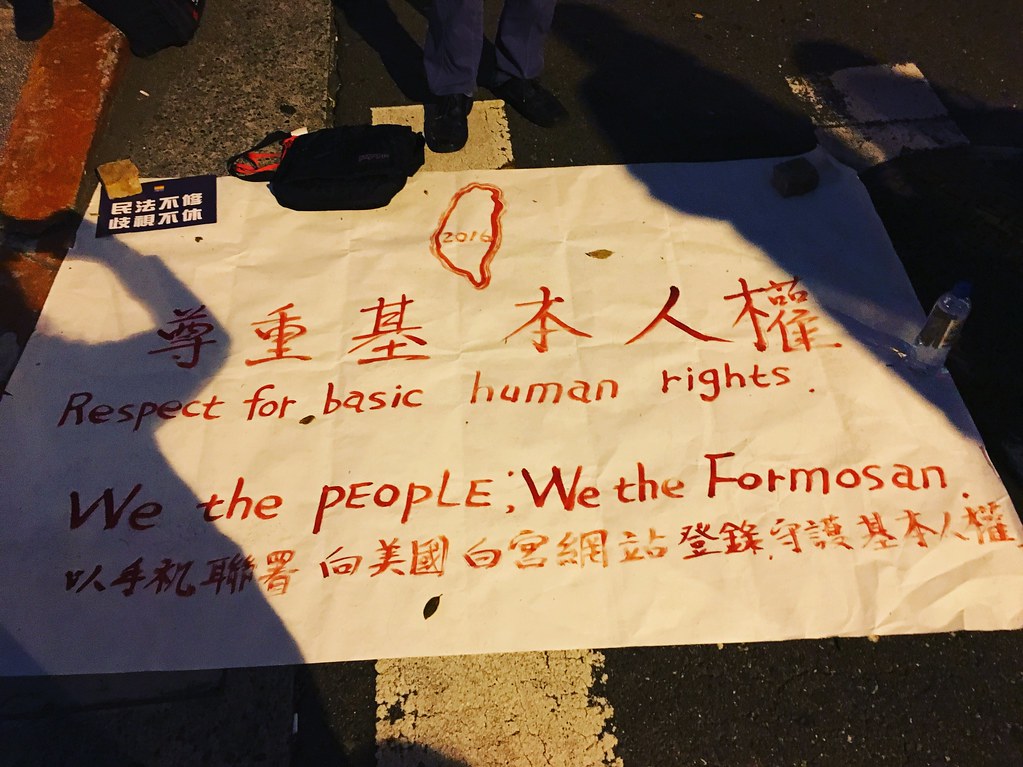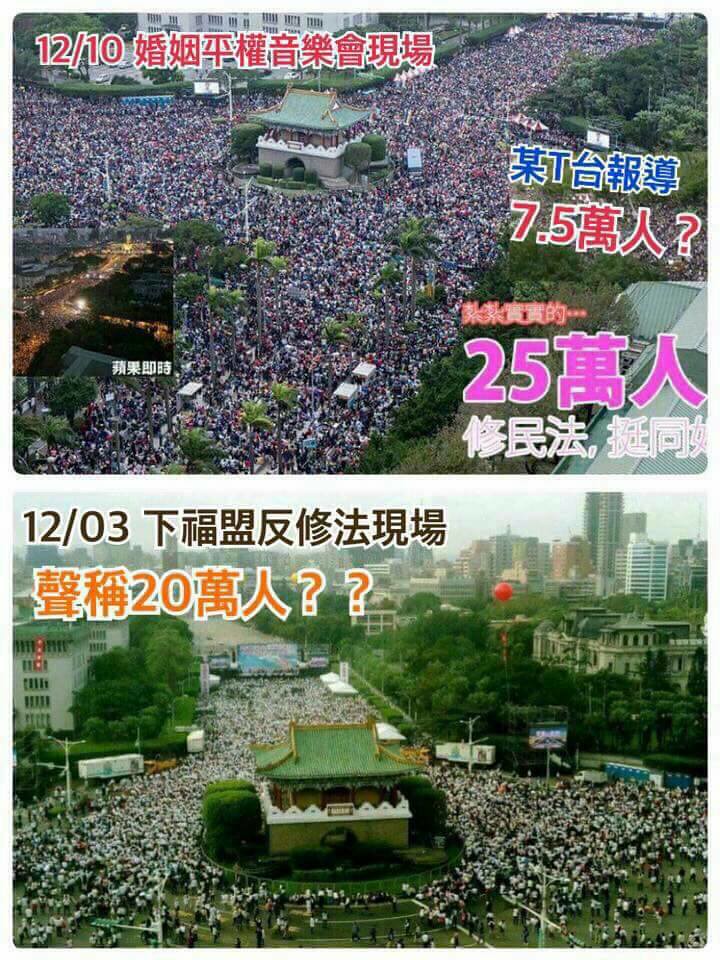 Our work is not done.
Our work is not done.This coming Saturday, 12/17, is Taichung Pride, and once again we need to beat the numbers of anti-equality protesters who gathered in that city (I think 40,000). As much as I'm not a fan of Taichung and its near impossible transportation, I would go if I didn't have work in Tainan that day.
The day after Christmas (12/26 just in case I have to make that clear) is the date of...well, I'll let Taiwan Law Blog explain it (from their comment on my previous post):
December 26 is a committee meeting where they will decide whether to refer the bill(s) to the entire Legislative Yuan. The plenary session that includes all 113 members will be the second reading, which won't take place until February at the earliest because that's when the next legislative session starts. Also, all three bills in the committee amend the Civil Code, though Yu Mei-nu's doesn't not change the language throughout (are you referring to hers when you said 'append to it'?). There are no civil partnership bills on the table now. Some DPP legislators may introduce one before December 26, but the KMT has said it will not.
There will be protests.
There will be rallies.
I hope many of you will consider going to one or both of these events, lending your bodies once again to provide physical proof that the Taiwanese want marriage equality.
The anti-equality advocates are as organized as ever, and they're not going to stop. It doesn't seem to matter to them that they are in the minority, nor that a huge number of them want to inflict Christian-doctrine inspired law on a country where less than 5% of the population are Christians. Nor does it matter to them that, even if Taiwan were a majority Christian nation, that it is not right for one religion's doctrine to be the deciding factor in laws governing a pluralistic society. The idea that one cannot legislate one's religion, or that one is not entitled to insist that their culture is a certain way (that is, conservative, traditional) when the clear numbers show that it's not, is also lost on them.
Their leaders are acting like tyrants, trying to push beliefs that the majority of Taiwanese have rejected onto the nation simply to satisfy their own dogmatism and prejudice. They are causing real pain to many LGBT Taiwanese who simply want legal recognition of what is already true: legal recognition of relationships that will exist regardless of the law.
Some of them can be talked to, perhaps a few can be convinced. A large number, I suspect, are ensconced in their roles as mini-tyrants, trying to dictate culture to, and inflict unwanted religious dogma on, a populace that doesn't agree with them. All we can do is show the government that they are in the minority and we not only have the numbers, but progress and moral right on our side. If we cannot sway them with compassion, we have to let them feel the pain of losing.
We scored a major victory this past Saturday, 250,000 coming out (pun intended even though I'm straight) to stand for marriage equality, decisively crushing by the numbers those opposed to equality. It's all the more satisfying because the media, in a rare turn of accuracy, reported the more correct crowd estimates for this past Saturday, rightly ignoring the clearly skewed police estimate of 75,000.
The lower estimate given by police, compared to the "200,000" number bandied about for the anti-equality protest, is not an accident. It is deliberate misinformation. It is the essence of fake news. They did the same thing to the Sunflowers, if you remember.
 From here
From hereWe not only have to bring down the culture war tyrants, but fight back against attempts to minimize the proof that the Taiwanese know what they want, and that that's equality.
We have to keep beating them at the media game, and keep beating them by the numbers. We have to call them out, and we have to refuse to listen to their obfuscatory tactics masquerading as logic. When they quote a debunked study, or post links to a website with an agenda as "proof" of the correctness of their views, or claim falsely that they are the "silent majority", or speak in dogmatic, generalities and deliberately confused and jejune metaphors (for example: "children need an apple and an orange for complete nutrition, not two apples or two oranges"), we must refuse to listen.
When they say this is a Western import, and not intrinsic to Taiwanese culture, we must again refuse to listen. Nobody (except possibly the voice of reason) died and made them emperors of what is and is not Taiwanese culture. If this idea were being forced on Taiwan by Western countries, 250,000 Taiwanese wouldn't have shown up last weekend to insist otherwise. They are the minority and they are the voice of reactionary bigotry, and it's time they felt like it.
As J. Michael Cole put it, this isn't just about marriage equality (link in Chinese) - it's also about what the Taiwanese want their country to be. It's about the process of national identity. Does Taiwan want to be a country of inclusiveness and tolerance, or does it want to deny equal rights to 10% of its citizens because a few people are uncomfortable with it?
This is not a foreign issue. It is not a foreign import. 99.9% (or so) of the attendees on Saturday were Taiwanese - young Taiwanese, but Taiwanese nonetheless. This is a Taiwanese issue, facing a society that, at its core, is accepting, tolerant and progressive by Asian standards.
Taiwan has a beautiful name, and the truly touching show of support last Saturday showed it also has beautiful ideals. We're not done yet, though. We need your bodies again, in the 17th and the 26th, to turn those ideals into legal reality.
Please come.
